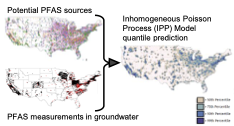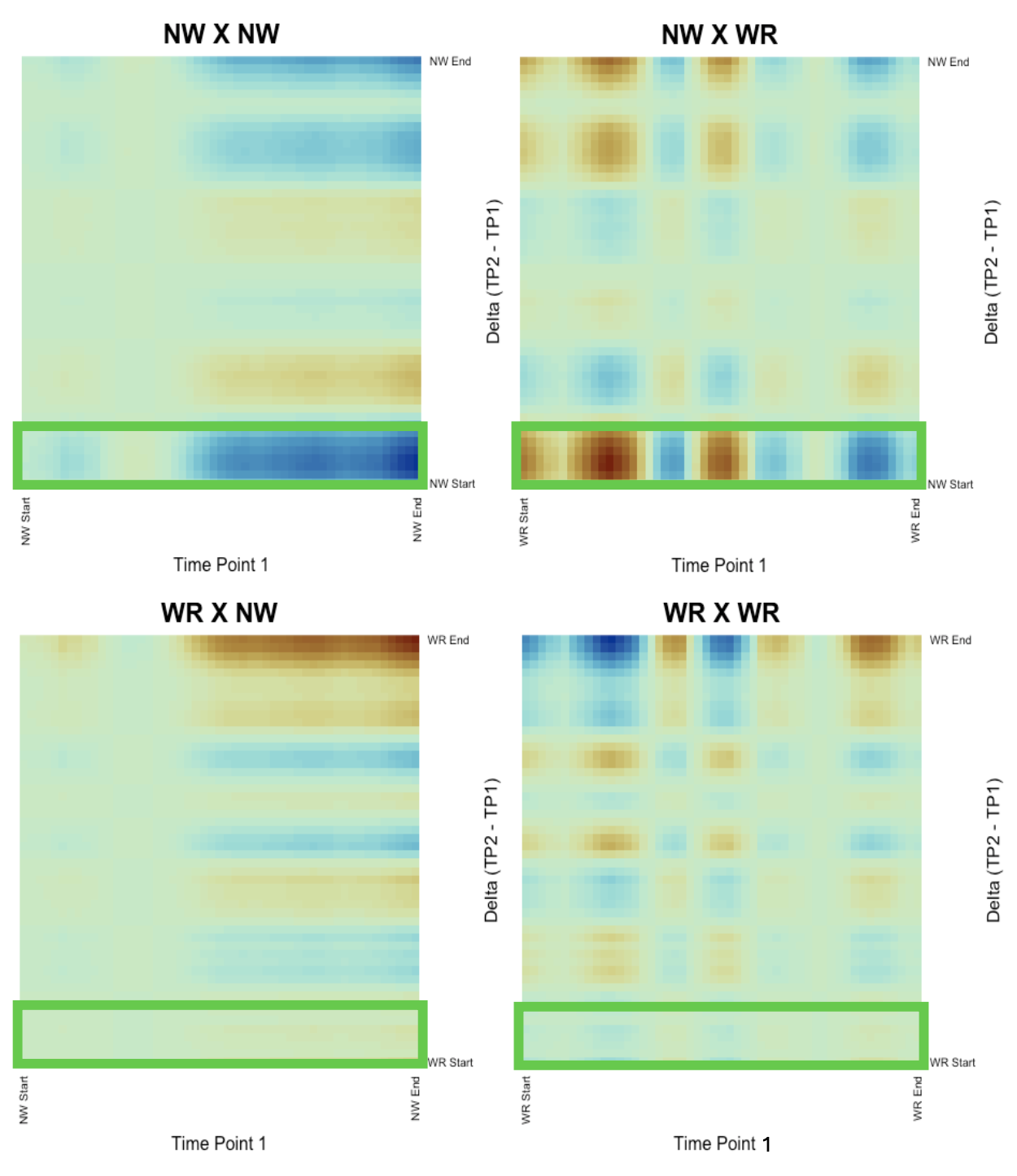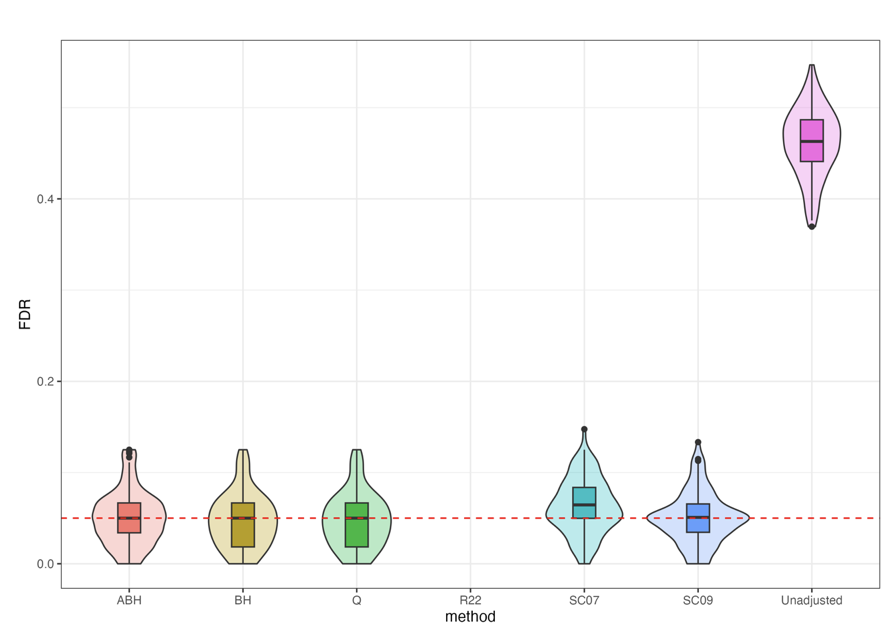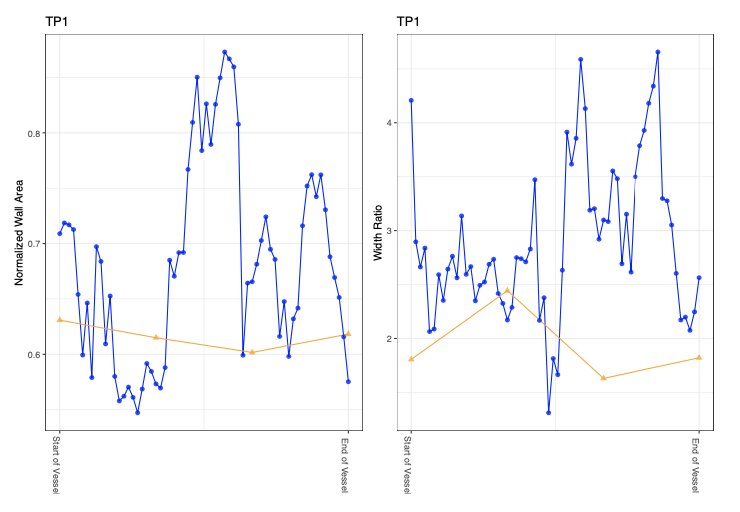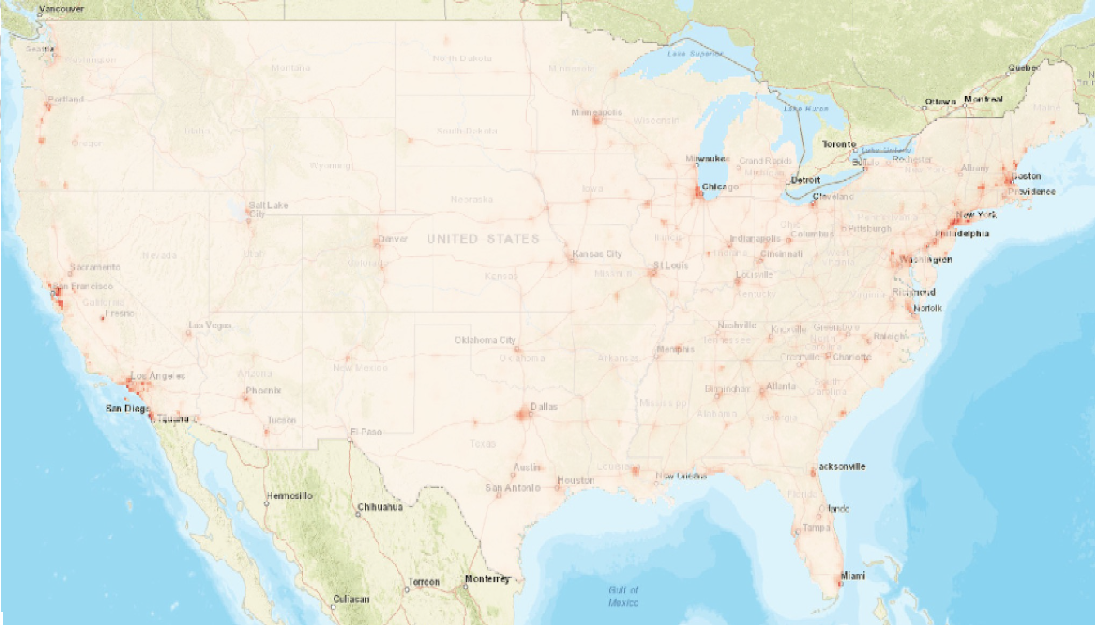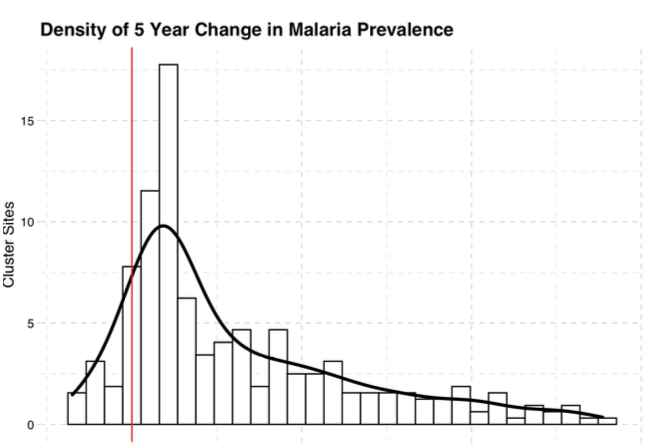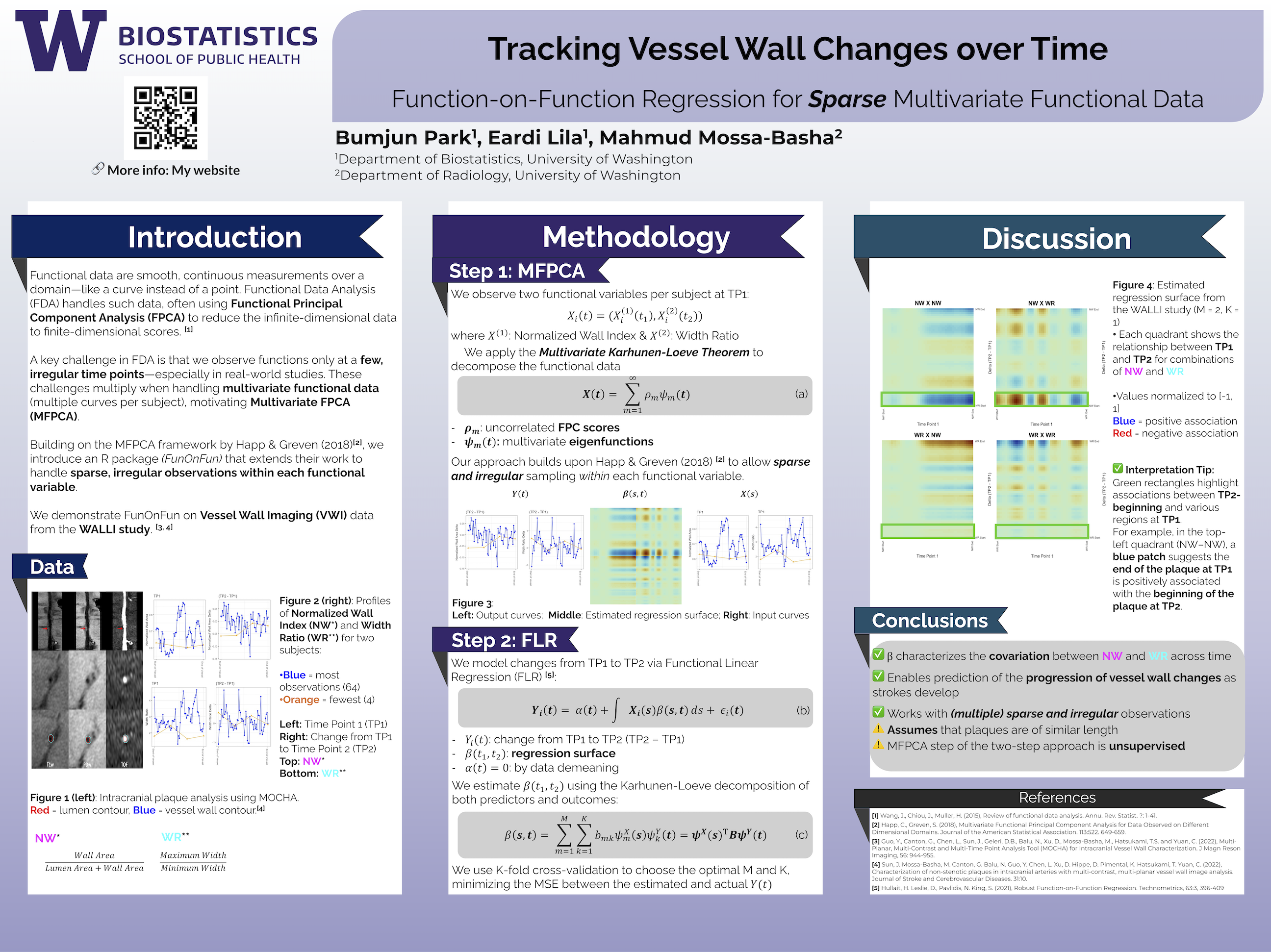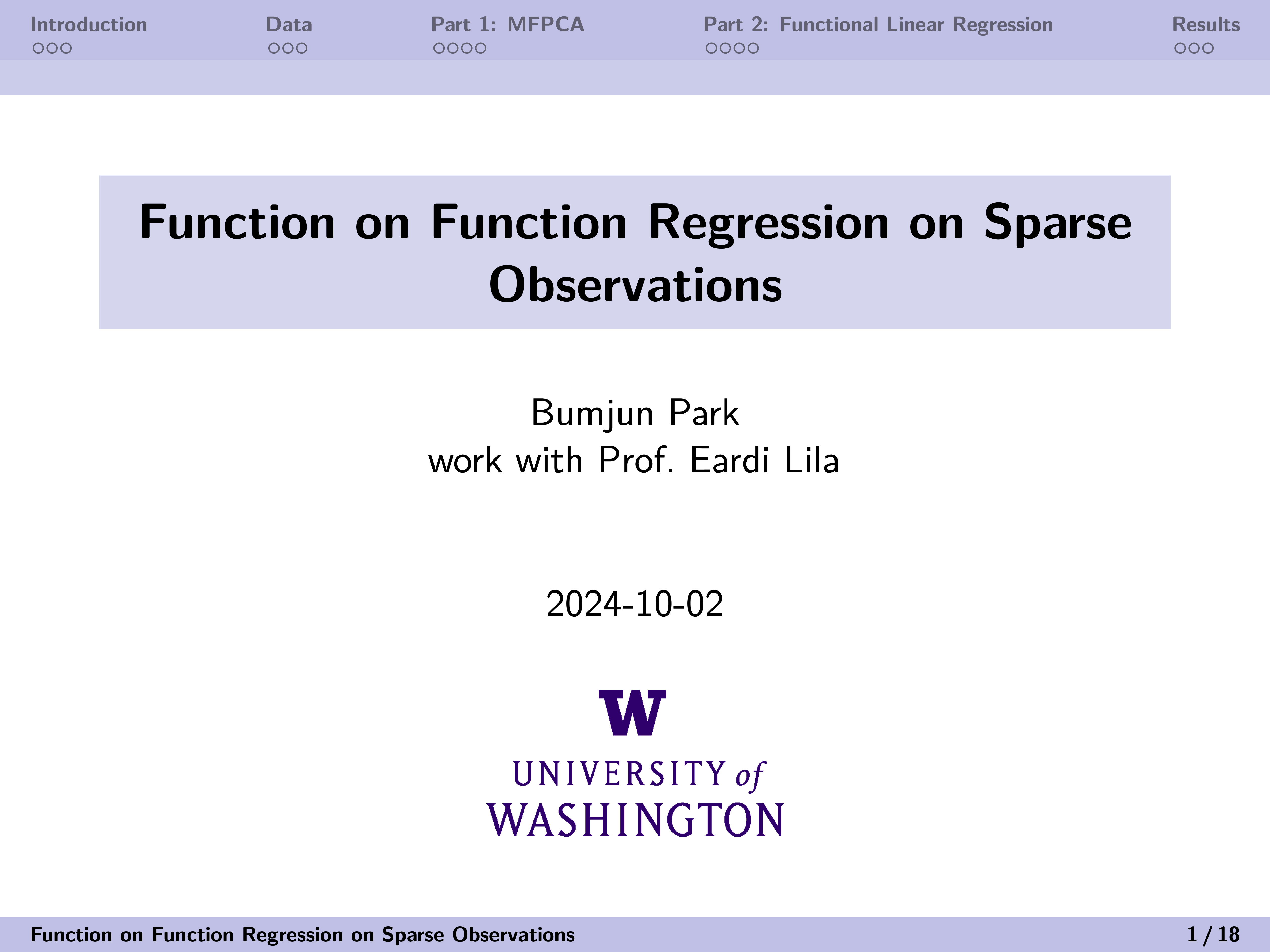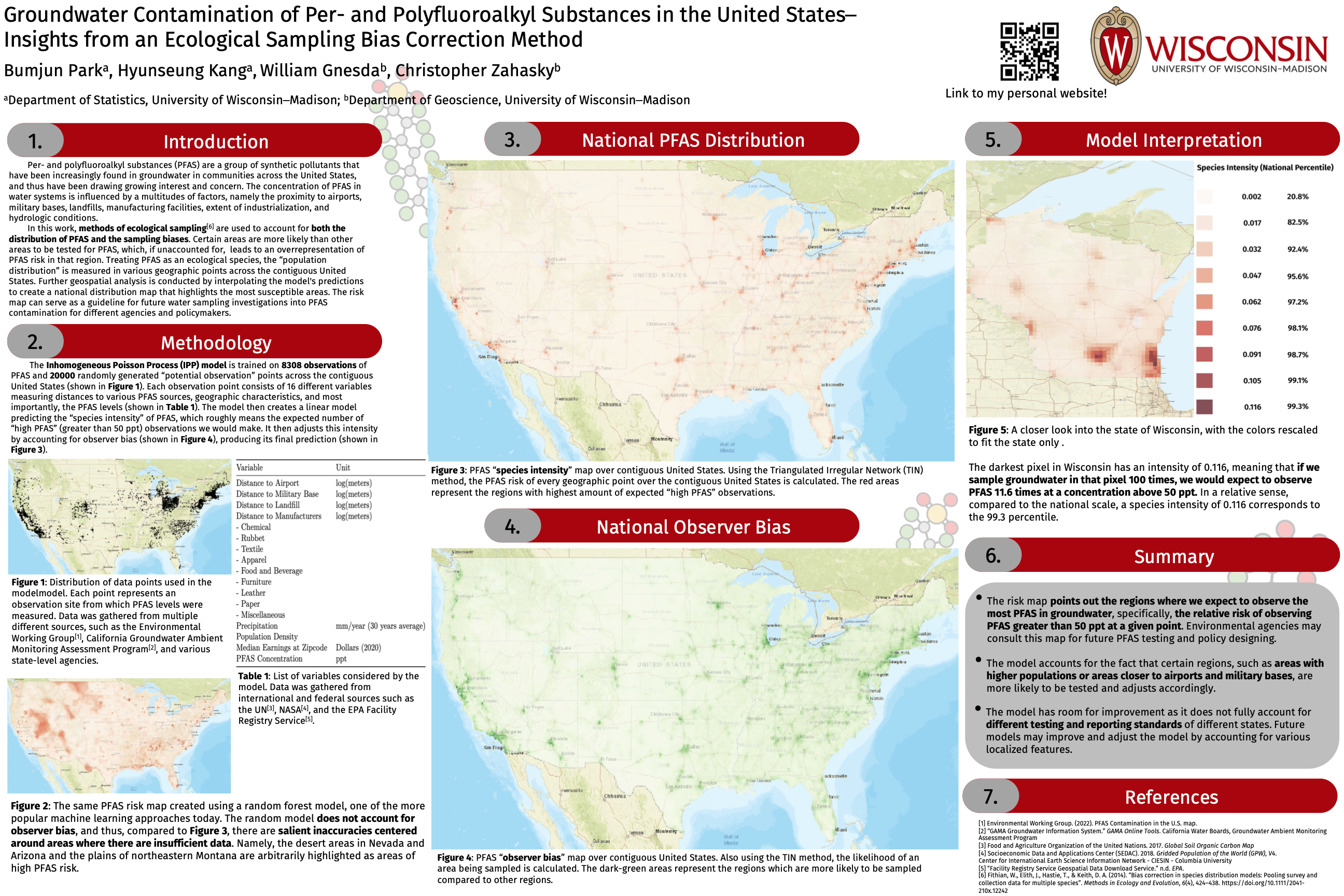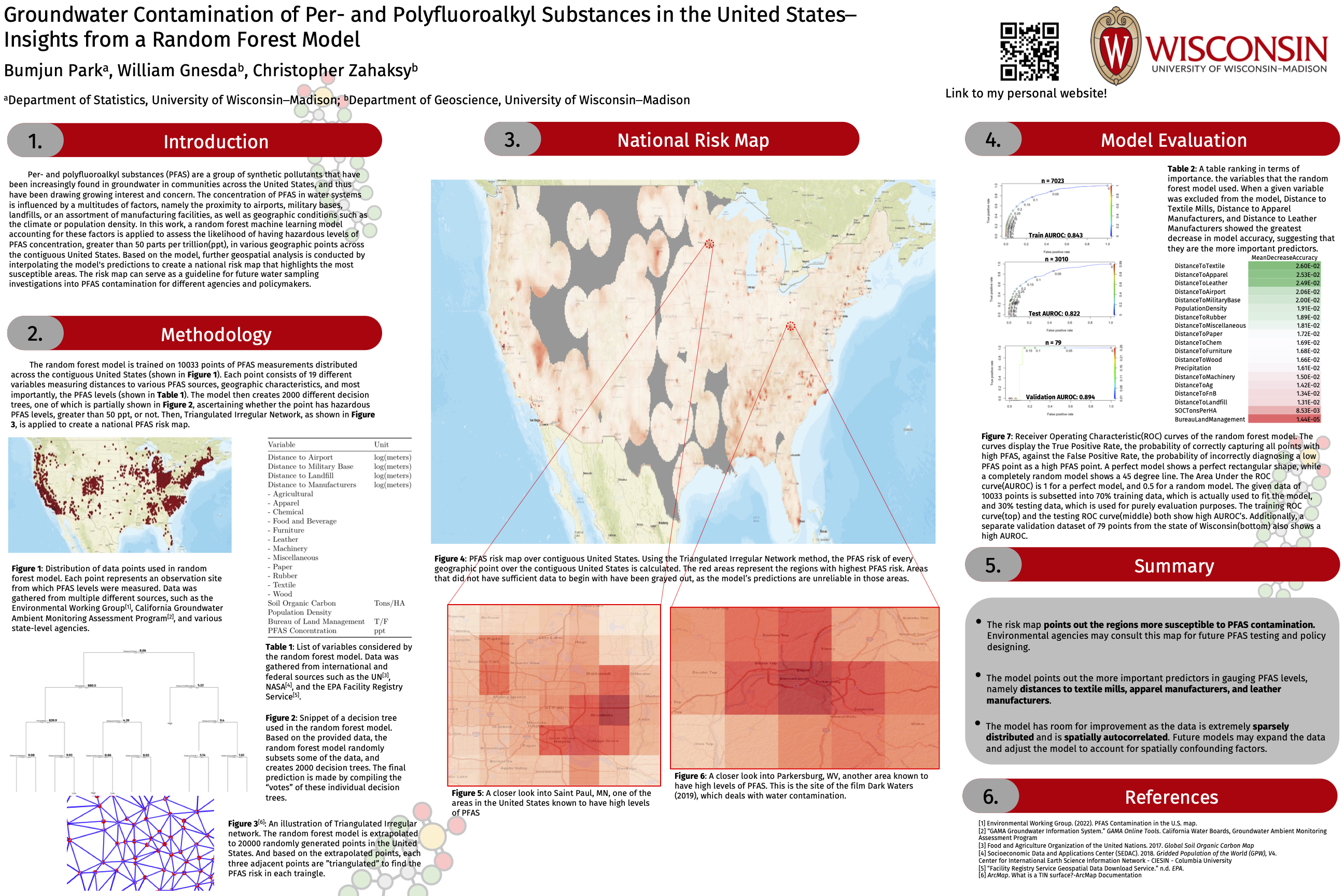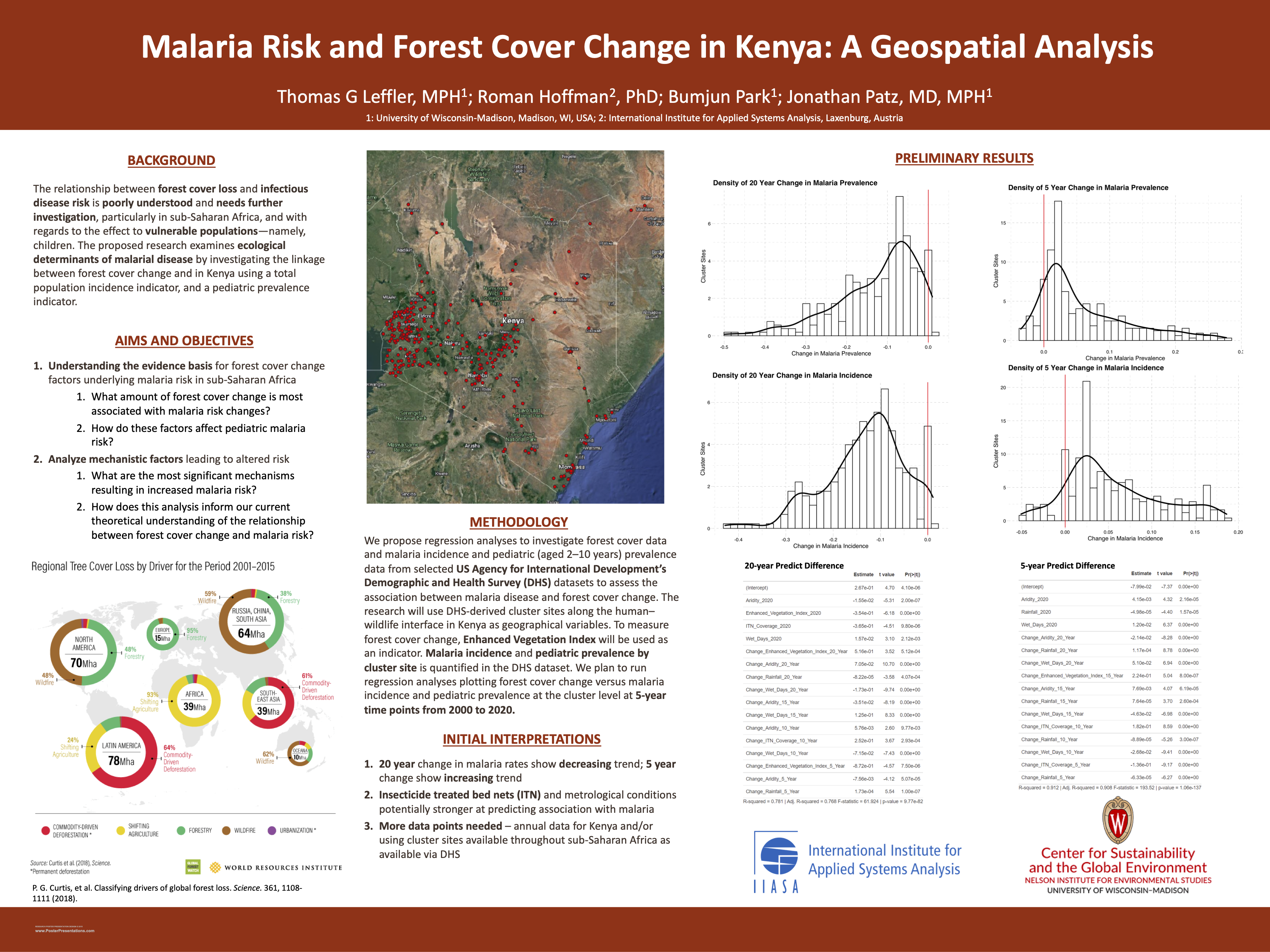About Me

Bumjun Park
Ph.D. Student
Hi! My name is Bumjun Park. I am from Seongnam, South Korea, and grew up between Seongnam and Madison, Wisconsin. I am currently a doctoral student in Biostatistics at the University of Washington. I am a proud Wisconsin Badger, holding a degree in Statistics and certificates in Mathematics and Economic Analytics. I am a native speaker of English and Korean.
I am advised by Professor Professor Eardi Lila, working to advance functional data analysis methods for neuroimaging and biomarkers in Alzheimer's disease. My broader academic interests include spatial and environmental statistics, functional data analysis, and network modeling.
I also do research with Professor Amy Willis on developing phylogenetic modeling methods to assist in allergen detection from pollen samples. And with Professor Jon Wakefield, I am investigating Bayesian methods of modeling mortality data, addressing the challenges of data missingness to produce more robust estimates of child mortality.
-

March 2015- February 2018
Hankuk Academy of Foreign Studies
International Department
-

September 2018 - May 2023
University of Wisconsin-Madison
BS in Statistics
Certificate in Mathematics, Economic Analytics -

September 2023 -
University of Washington
Ph.D. Student in Biostatistics
